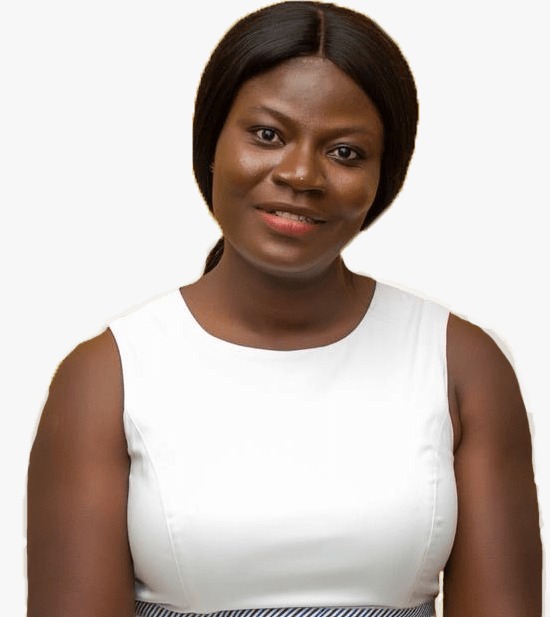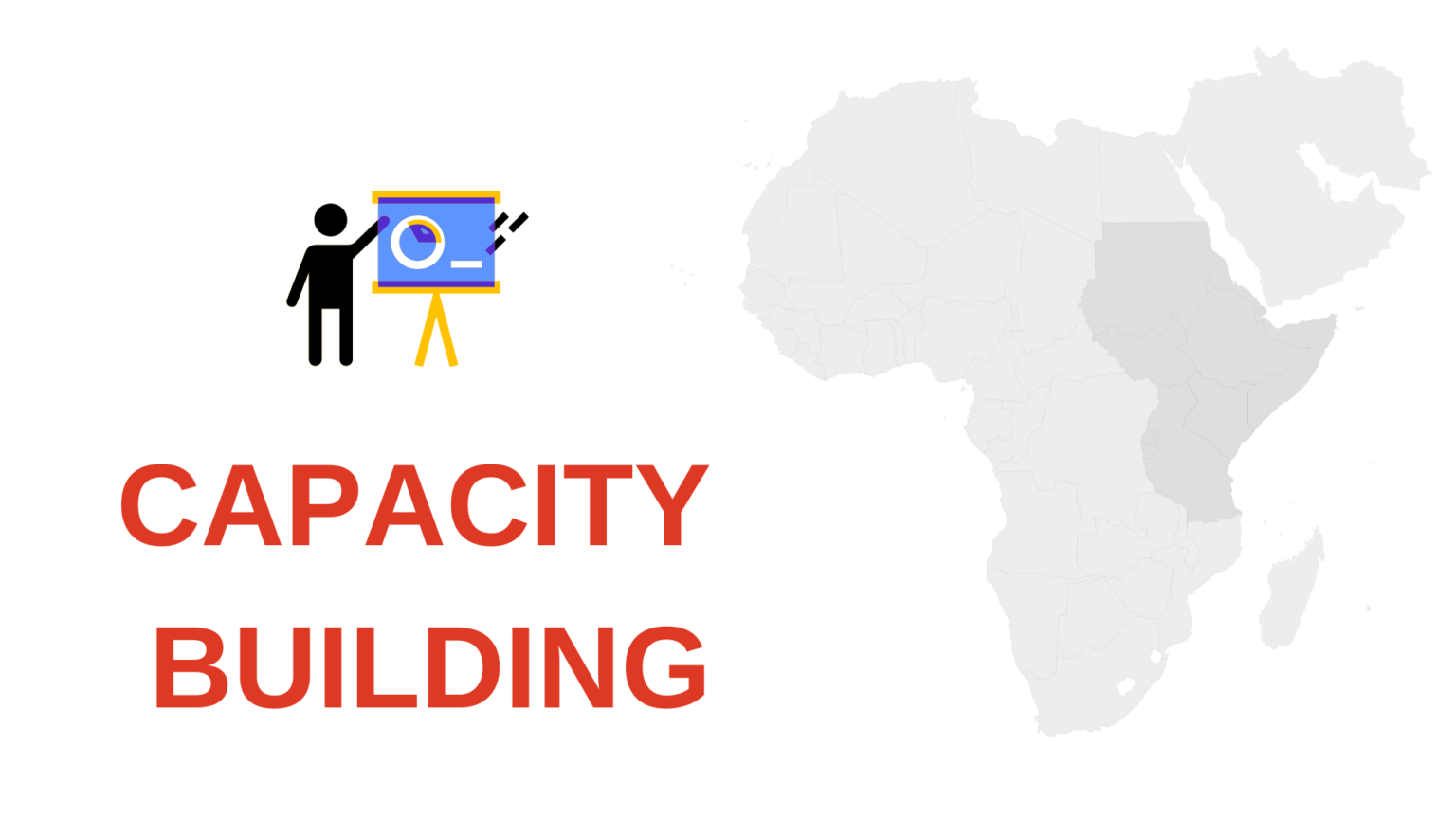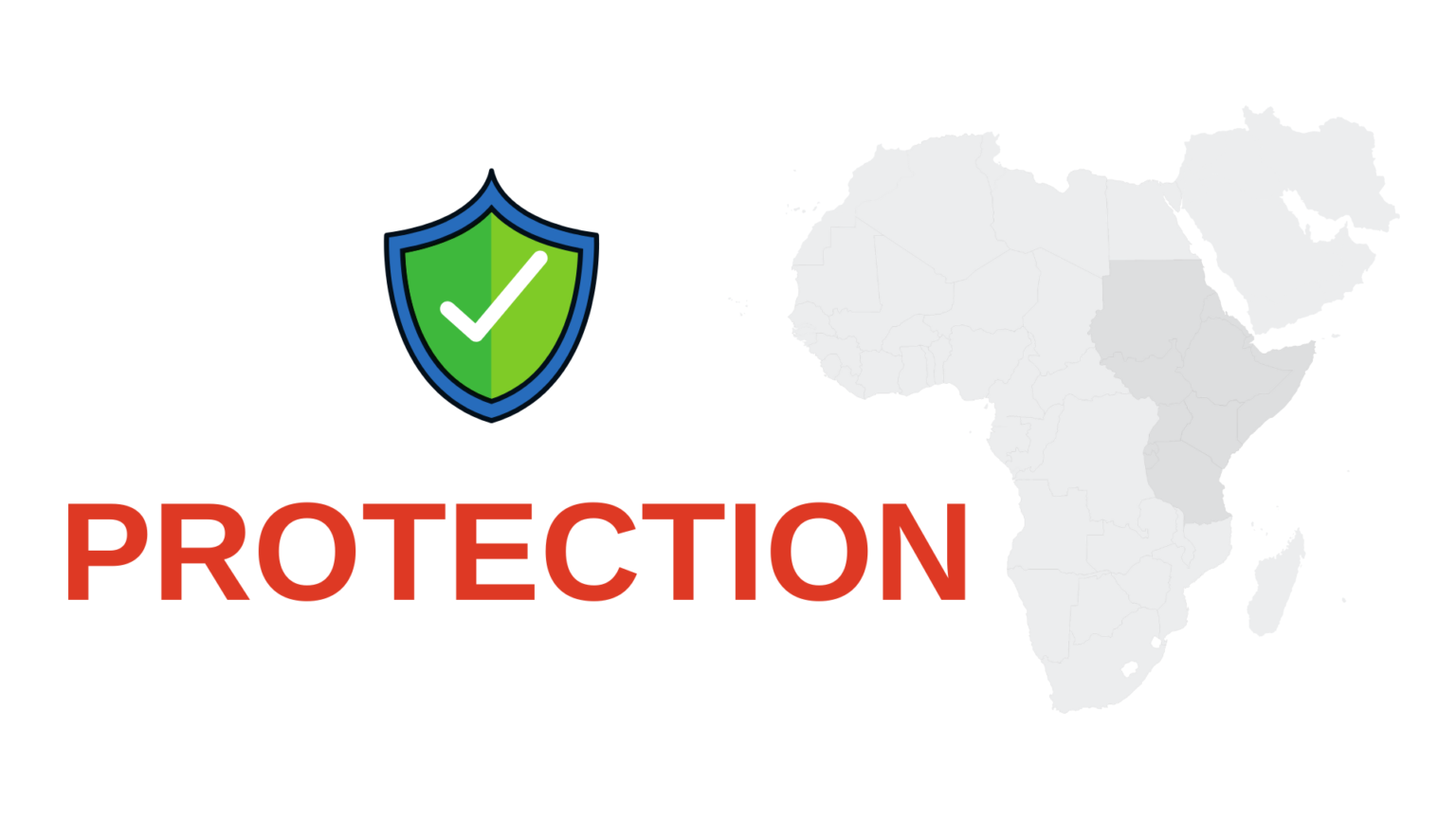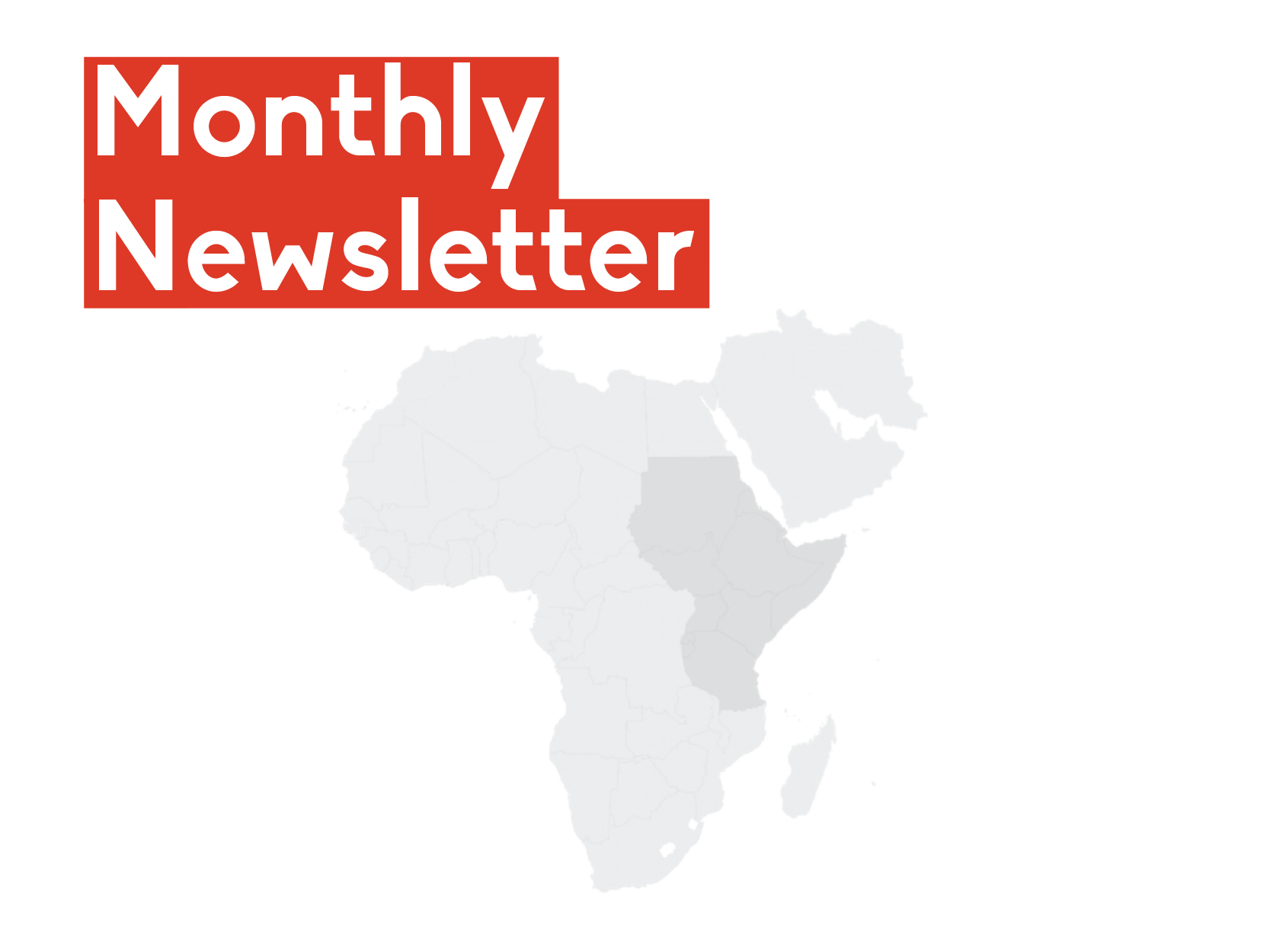Hello Friends,
September was a busy month for us, from advocacy to capacity building. At the start of the month, AfricanDefenders hosted its annual Ubuntu Hub Cities Coordinators Workshop in Durban, South Africa, while there, I found myself revisiting a question: Why must African human rights defenders seek safety outside the continent?
This question, first raised years ago in a conversation with Arnold Tsunga and fellow human rights defenders (HRDs) in exile, inspired the vision that led to the adoption of the Kampala Declaration (1998), the creation of regional HRD networks, and ultimately, the establishment of AfricanDefenders and the Ubuntu Hub Cities Initiative.
Through the Ubuntu Hub Cities, HRDs at risk can now relocate within Africa, remaining connected to their work and rooted in communities that understand their struggles. The Durban workshop reaffirmed the importance of this model, one built on solidarity, shared responsibility, and innovation.
As we reflected on progress, I emphasised that sustainability requires accountability, good governance, and creativity. Protection mechanisms must remain agile, responding to new threats while ensuring defenders’ dignity and resilience. I also called for renewed diploactivism, open dialogue with governments on immigration and exile policies, and urged states to honour their obligations under the African Union’s Protocol on Free Movement of Persons.
On the advocacy front, DefendDefenders’ participated in the 60th session of the Human Rights Council (HRC60), marking one of our most active engagements yet. Building on the groundwork led by our Geneva office, we hosted HRDs from Sudan and Burundi and conducted activities with special procedure mandate holders from both the Human Rights Council (HRC) and the African Commission on Human and Peoples’ Rights (ACHPR) under the framework of the Addis Ababa Roadmap. We also advocated for meaningful outcomes on Ethiopia and Somalia, ensuring that African voices remained central in global human rights discussions.
I invite you to turn the pages for details of our engagements this month.
Hassan Shire
Executive Director, DefendDefenders
Chairperson, AfricanDefenders
Human Rights Defender of the Month: Esther Tawiah

Esther Tawiah is a Ghanaian woman human rights defender (WHRD) and passionate advocate for gender equality, governance, and women’s political participation. Over the years, she has dedicated her work to amplifying women’s voices, strengthening democratic accountability, and ensuring that women take their rightful place in leadership across Africa. As the Coordinator of the Ubuntu Hub City in Accra under AfricanDefenders, Esther plays a vital role in protecting and supporting human rights defenders at risk, offering them safety, solidarity, and hope.
“Lives have been saved. Lives and families have been saved. I remember one defender who came to us crying, a man crying, because he and his family had been rescued. He said, ‘I don’t know what would have happened to us. Others who couldn’t get the opportunity are dead.’ Some walked through the bushes for days, others needed medical attention but had no help. When you call DefendDefenders, they respond. That gives this work a human face. It’s not about statistics; it’s about people who want good for their countries.
What touches me most is that families are not left behind. It’s not only about the HRDs on the frontlines; spouses and children are protected, too. Some have been evacuated together, supported, and even helped to continue their education. The human face is seen. Honestly, I don’t know what we would have done without DefendDefenders and AfricanDefenders on the continent.” — Esther Tawiah, Ubuntu Hub City Coordinator, Accra
20 YEARS DEFENDING CELEBRATIONS.
Follow the 20 Years Defending Celebrations Live!
On 4–5 November 2025, the world gathers in Kampala, Uganda, to look back and reflect on 20 years of protecting and promoting the work of human rights defenders (HRDs) and to reimagine the future of human rights protection.
Join us and follow the proceedings live via our YouTube channel.
Stay connected through our social media platforms for updates, highlights, and key moments from the event.
Updates from DefendDefenders

From 1–4 September 2025, DefendDefenders, in partnership with the Exiled HRDs Working Group, convened a four-day training in Kampala focused on the safety, security, and well-being of human rights defenders living in exile. The training was attended by 14 HRDs from DRC, Sudan, South Sudan, Ethiopia, and Burundi, who combined expert presentations, scenario-based group work, and discussions on physical security management. Participants also received guidance on psychological well-being and learnt coping techniques for stress and trauma.
Between 8 and 12 September 2025, DefendDefenders conducted follow-up visits in the Albertine Graben and Karamoja regions, following a training on human rights monitoring, documentation, and reporting (MDR) and KoboToolbox/KoboCollect in June 2025. The follow-up visits assessed the efficacy of implementing the action plans that the HRDs had developed following the June training. It was discovered that the trained organisations have been unable to effectively implement action plans and dedicate sufficient time to training sessions for partner organisations due to limited funding and poor digital literacy levels among partnering organisations in rural areas. The organisations were compelled to either conduct one-day physical training sessions or resort to online training sessions. DefendDefenders provided two organisations with a laptop and one Internet router, respectively, in addition to training follow-up visits to help digitise organisational processes and provide technical assistance to other human rights organisations.
From 9-12 September 2025, DefendDefenders conducted a follow-up mission in the Karamoja region, following the concluded Security and Management training that was held in May 2025. During the follow-up, the Protection and Tech team engaged with sixteen HRDs from the seven organisations that participated in the security management training. The main objective of carrying out the follow-up was to assess the implementation of the organisational security plans developed by the HRDs during the training and provide recommendations to further strengthen their security plans and protocols, as well as provide any further support to HRDs and their organisations.
Between 15 and 19 September 2025, DefendDefenders conducted physical and digital security assessments in Northern Uganda, covering Kitgum, Gulu, Yumbe, and Arua districts at four radio stations. The visits aimed to contribute to a safer and more resilient media environment by conducting a comprehensive, field-based risk and needs assessment. The assessments also informed the development of a consolidated, context-specific safety manual for journalists, drawing on field findings and best practices in Uganda. Concurrently, similar assessments were conducted in Eastern Uganda.
From 23 to 26 September 2025, DefendDefenders participated in the Digital Security Helpdesk at FIFAfrica25 in Windhoek, Namibia. We provided an in-person digital security helpdesk for forum participants, with one DefendDefenders’ staff member with expertise in digital safety available throughout the event to offer on-site support and advice.

ADVOCACY
On 8 September 2025, after weeks of preparations, DefendDefenders conducted its advocacy efforts at the UN Human Rights Council’s 60th session (HRC60, 8 September-8 October 2025). Together with HRDs, we conducted advocacy in support of resolutions on Sudan and Burundi.
From 10–13 September 2025, AfricanDefenders convened the annual Ubuntu Hub Cities Coordinators’ Workshop in Durban, South Africa, bringing together hub cities coordinators, strategic partners, development actors, and representatives from academia and civil society to reflect, exchange experiences, and strategise on strengthening the protection of human rights defenders (HRDs) across Africa. The workshop, held amid escalating threats to HRDs, shrinking civic space, and funding constraints, underscored the urgency of reinforcing solidarity and developing a comprehensive, adaptive African protection infrastructure. Discussions emphasised that effective collective protection now requires an ecosystem of shared responsibility, where protection partners, universities, and donors leverage their respective strengths, rapid response capacity, intellectual and institutional support, and resource mobilisation to sustain HRDs beyond emergency relocation. Participants further called for expanding protection networks to include unconventional allies such as religious institutions and businesses. The workshop concluded with reflections on the growing financial austerity and restrictive NGO legislation across Africa, highlighting the need for robust political advocacy to affirm that human rights protection remains central to governance, stability, and sustainable development.
From 16-17 September 2025, AfricanDefenders took part in the 2025 Activist Symposium at Wits University under the theme “Navigating Activism in an Anti-Human Rights Era,” which brought together a diverse representation of activists from across the continent, including Lusophone countries, Botswana, South African grassroots movements, and artists. The discussions, structured around the sub-themes of the Anti-democracy, Austerity and Aid, and South-to-South Solidarity, examined the global rise in repression, strategies for resistance, and the importance of collective action. The Symposium emphasised the need for stronger documentation to counter anti-rights narratives, raised concern over states’ manipulation of youth by assigning them symbolic titles with little influence, and called for legal aid responses that go beyond rapid interventions to include proactive measures such as simplifying legal instruments and donor requirements. It also highlighted the importance of improving how civil society communicates and packages its work to enhance impact.

In the month of September 2025, DefendDefenders received and managed a total of 87 requests for emergency assistance from HRDs. 42requests out of the total were offered the appropriate interventions. A total of 86 individuals benefited indirectly from the grants awarded. 31requests were declined due to various reasons such as provision of inaccurate information, no demonstrated human rights work, and risks faced not related to human rights work. While 5 requests were referred to other protection service providers for further assistance as per their mandates. 8 requests are undergoing the vetting process.
Country Updates:
ETHIOPIA
On 3 September 2025, federal police and plainclothes security officers raided Sheger FM’s offices in Addis Ababa, following a report on widespread protests over poor working conditions for healthcare workers. The Ethiopian Media Authority had accused the station of “incitement to violence and bias” and ordered the removal of the segment from its social media platforms. During the raid, officers detained head of news Eshete Assefa and arrested journalists Mintamir and Tigist. Eshete was released later that evening without charge, while Mintamir and Tigist remained in detention at the Federal Police Crime Investigation Bureau, with no charges disclosed. Their court appearance on 5 September before the Federal High Court in Lideta was postponed due to a full docket.
SOMALIA
Gunfire erupted in Mogadishu on 10 September 2025 as opposition leaders and their armed escorts clashed with Somali police outside the Warta Nabadda district station. The incident followed public outrage over viral footage showing officers assaulting two elderly civilians during forced evictions in nearby neighbourhoods. The confrontation left one person dead and several others injured, though casualty figures remain disputed. Opposition leaders, including former President Sharif Sheikh Ahmed and former Prime Minister Hassan Ali Khaire, accused the government of using excessive force during forced evictions and said they intervened to protect displaced residents. Government officials, however, claimed the opposition tried to storm a police station and portrayed the confrontation as a security threat.
On 8 September 2025, evicted families, mostly women and children, held a peaceful protest near the Mogadishu residence of Galmudug State President Ahmed Abdi Kaariye Qoor Qoor. The demonstrators were residents displaced from the former fire brigade camp in Wadajir district who accused the president of failing to fulfil his promise to provide them with alternative land following government-led demolitions.
On 9 September 2025, the Puntland Attorney General’s Office summoned journalists Suways Jama Mohamud and Hassan Abdi Ali for questioning following complaints filed by the Ministry of Information. Both journalists have faced growing pressure for their independent reporting critical of Puntland authorities. Suways, a reporter for Puntland State TV and founder of Suways Media, had earlier published an interview with a local commander from the SSC-Khaatumo group, after which she allegedly received threats of arrest and was unlawfully suspended from her position. Although the suspension was later overturned by the Ministry of Labour and Puntland State TV’s human resources office, Suways was summoned again in September and questioned about social media posts and vox pop interviews in which citizens criticised senior government officials, including the president and vice president. Similarly, Hassan Heykal, director of Milgo Media, was interrogated about five reports, among them interviews with critics of government conduct and commentary highlighting alleged abuses by security personnel linked to the vice president. Both journalists were accused of “criticising government officials and incitement” without being formally charged.
SOMALILAND
In September, there was another surge of mass arrests with at least 10 reporters being detained in three weeks. On 27 September, police in Erigabo, Sanaag region, arrested and physically assaulted four reporters who questioned the Minister of Education, Ismail Yusuf Duale, about the closure of local schools. They were detained for seven hours and released without charge, while a fifth journalist escaped with injuries. The same day, police in Gabiley arrested journalist Mohamed Wadiin after he reported on the detention of clan elders who had criticised the government’s land seizure in Wajale. He remains in custody without an arrest warrant, in violation of Somaliland’s constitution. Earlier in September, police in Burao detained KF Media TV journalist Abdiaziz Saleban Sulub for 18 days, allegedly on the orders of the Togdheer governor over critical reporting. Although the court later acquitted him, he remained in custody pending appeal. On 11 September, three journalists were briefly detained in Borama after covering local criticism of the regional governor during President Abdirahman Irro’s visit. Separately, journalist Ahmed Mohamud Dool was imprisoned for 30 days in Hargeisa after publishing allegations of police involvement in murder cases. Despite initial optimism for reform under President Irro’s leadership, Somaliland’s civic space continues to shrink, with SJS documenting 24 journalist arrests and two media outlet bans in the past nine months, reflecting deepening intolerance of dissent and erosion of press freedom.
SOUTH SUDAN
South Sudan’s political tensions have deepened following the government’s decision to charge suspended First Vice-President Riek Machar with murder, treason, and crimes against humanity, raising fears of renewed instability. Justice Minister Joseph Geng Akech stated that the charges stem from a March attack by a militia allegedly linked to Machar, which killed 250 soldiers and a General in Nasir. Authorities have blocked roads leading to Machar’s residence in Juba, where he has remained under house arrest since March. Seven of Machar’s allies, including Petroleum Minister Puot Kang Chol and Army Deputy Chief of Staff Lt Gen Gabriel Duop Lam, face similar charges, while 13 others remain at large. Machar’s spokesperson has dismissed the accusations as a politically motivated attempt by President Salva Kiir’s allies to undermine the 2018 peace agreement that ended the civil war, arguing that the judiciary lacks independence. The Justice Minister has defended the prosecution as an assertion of accountability, but the case has heightened political mistrust amid fragile ethnic relations between the Dinka and Nuer communities. The unfolding developments risk destabilising the power-sharing government and reversing the limited progress achieved since the 2018 peace deal.
On 22 September 2025, journalist Ruot George and civil rights activist Ter Manyang Gatwech reported being assaulted, detained, and subjected to degrading treatment by police and the NSS while attempting to access or report on the trial of suspended First Vice President Riek Machar. George, a freelance journalist, said he was denied entry to the courtroom, beaten, and held in a military vehicle after officers accused him of taking unauthorised photos and confiscated his equipment. Gatwech, executive director of the Centre for Peace and Advocacy, reported being physically assaulted, blindfolded, and threatened after identifying himself as an HRD, alleging that he was targeted based on his ethnic identity by security personnel.
TANZANIA
On 6 September 2025, the Tanzania Communications Regulatory Authority (TCRA) announced that it had suspended JamiiForums, a well-known online platform for public debate and whistleblowing, for 90 days because the platform had published content that “misleads the public,” “defames” the president, and undermines national unity. JamiiForums said on X that the decision arose from its publishing of statements by Tanzanian politician Humphrey Polepole, as well as reports about President Samia Suluhu Hassan’s meeting with a wealthy Zimbabwean businessman “without verifying the facts” or seeking comment from the government.
On 29 September 2025, Human Rights Watch released a report documenting intensified political repression in Tanzania ahead of the general elections scheduled for 29 October 2025. The report corroborated findings by Tanzanian human rights organisations and revealed a pattern of state-led intimidation and rights violations. The Legal and Human Rights Centre recorded around 100 cases of abductions and enforced disappearances between 2015 and February 2025. Human Rights Watch separately documented 10 incidents since mid-2024 in which authorities allegedly harassed, assaulted, abducted, or tortured HRDs, opposition members, lawyers, and religious leaders. The report further highlighted systematic voter suppression in Zanzibar, where thousands of voters reportedly struggled to obtain the Zanzibari identity cards required for registration and access to public services. Local officials were accused of withholding cards from individuals perceived as opposition supporters. Journalists and activists described a pervasive climate of censorship and fear, with the Tanzanian Communications Regulatory Authority (TCRA) cited as a key instrument of state control. The findings point to an increasingly hostile environment for political participation, free expression, and independent journalism in the run-up to the 2025 elections.
UGANDA
On 8 September 2025, police officers detained Alex Waiswa Mufumbiro, the Deputy Spokesperson of NUP, outside a Kampala magistrate’s court. Mufumbiro had attended a bail hearing for several detained NUP members, including opposition activist Eddie Mutwe, when he was reportedly “violently grabbed and pushed” into a vehicle by plain-clothed officers. Police spokesperson Kituuma Rusoke later confirmed the arrest but declined to provide reasons or details on when Mufumbiro would be brought before court. The incident adds to growing concerns over the arbitrary detention of opposition figures and the use of security agencies to intimidate political opponents ahead of the 2026 elections. NUP leaders, including Leader of the Opposition Joel Ssenyonyi, condemned the arrest as further evidence of state repression and political interference in judicial processes. This incident follows earlier controversy involving Mutwe’s abduction, which Chief of Defence Forces Gen Muhoozi Kainerugaba publicly acknowledged on social media before Mutwe was later charged with robbery, deepening perceptions of impunity and the politicisation of Uganda’s law enforcement institutions.
On 10 September 2025, a protest in Mpigi district’s Muduuma Sub-County escalated into violence when supporters of the NUP clashed over internal party disagreements. The demonstrators, mainly NUP youth, were protesting against Mawokota North MP Hillary Kiyaga (Dr Hilderman), accusing him and other senior party officials, including Butambala Woman MP Aisha Kabanda, of manipulating the party’s flag bearer selection process ahead of the local council elections. The protesters claimed the decision to endorse another candidate unfairly excluded their preferred aspirant, Ivan Kasumba. When they marched to Kiyaga’s residence, believing he was inside, they were confronted by his supporters, sparking violent confrontations between the two groups.
During this protest, NTV journalist Brian Adam Kesiime was attacked by supporters of the opposition National Unity Platform (NUP). Kesiime was caught in the crossfire, filming the confrontation when an unidentified protester suddenly attacked him.
On 15 September 2025, Uganda police rejected accusations from NUP that they are abducting party members, insisting that all recent arrests are lawful and based on ongoing investigations. Police spokesperson Kituuma Rusoke stated that the claims of abductions are “false and politically motivated,” arguing that arrests are a legitimate part of police operations since the force’s establishment. Rusoke explained that several NUP members had been detained for allegedly engaging in unlawful military drilling and parades, offences under the Penal Code. He confirmed that ten suspects, including NUP Deputy Spokesperson Alex Waiswa Mufumbiro, had been arrested, with nine already appearing in court and another expected to be charged shortly.

